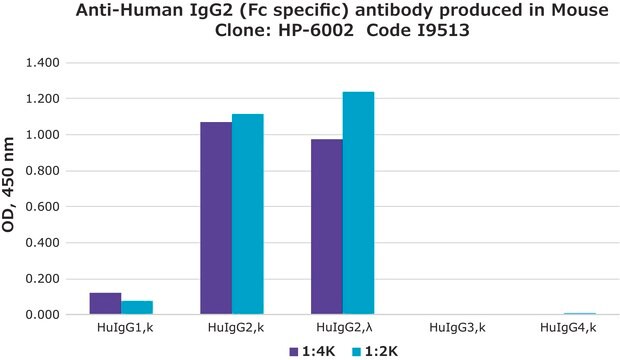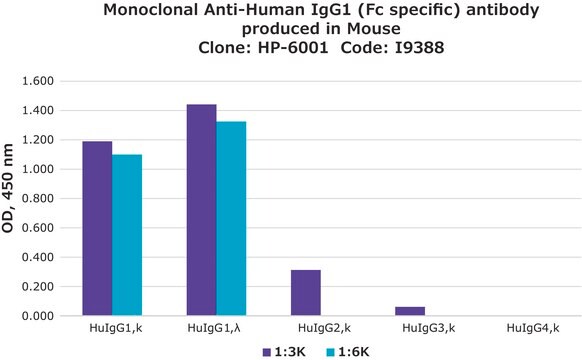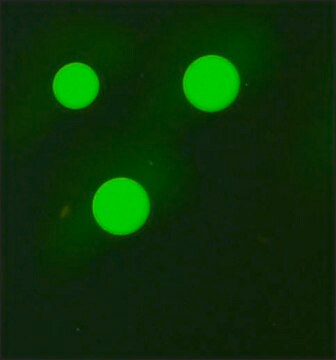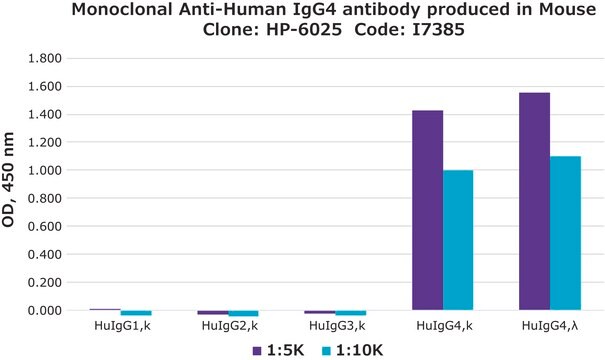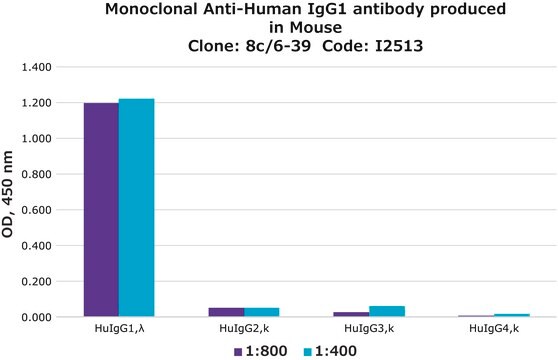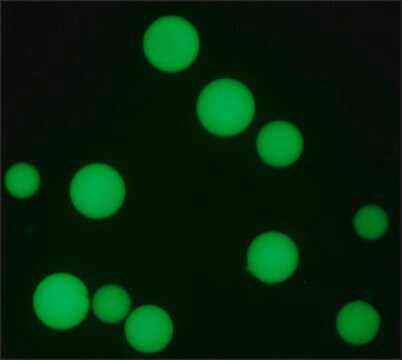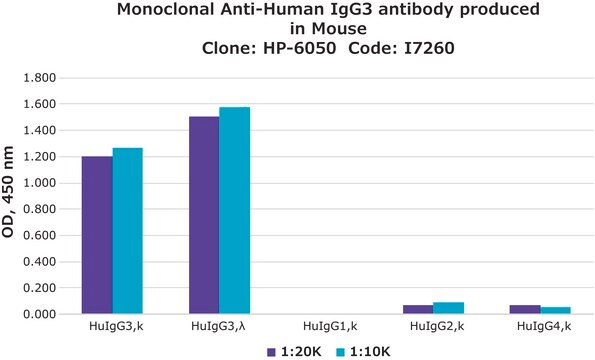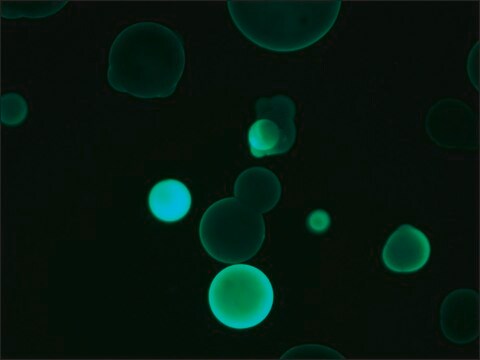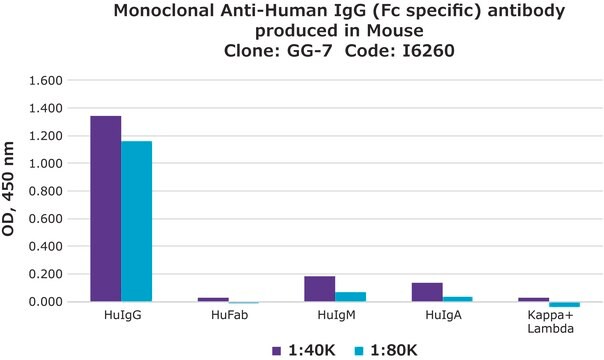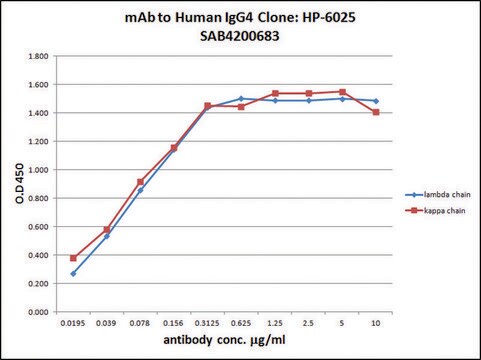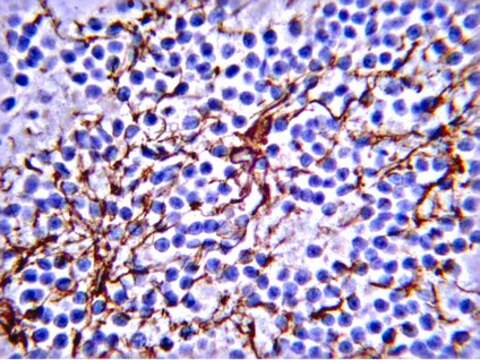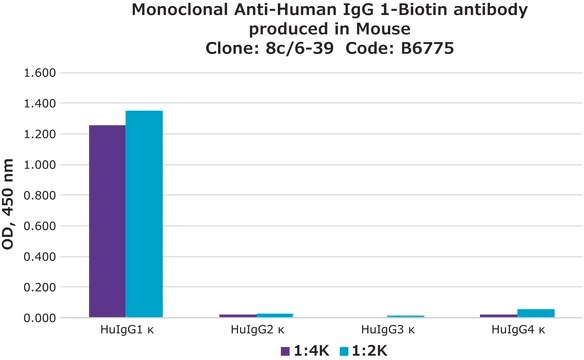I5635
Monoclonal Anti-Human IgG2 antibody produced in mouse
clone HP-6014, ascites fluid
Synonym(s):
Monoclonal Anti-Human IgG2
About This Item
Recommended Products
biological source
mouse
conjugate
unconjugated
antibody form
ascites fluid
antibody product type
secondary antibodies
clone
HP-6014, monoclonal
contains
15 mM sodium azide
technique(s)
indirect ELISA: 1:5,000
isotype
IgG1
shipped in
dry ice
storage temp.
−20°C
target post-translational modification
unmodified
Looking for similar products? Visit Product Comparison Guide
General description
Specificity
Application
It may also be used:
- in imprint immunofixation
- in immunofluorometric assay
- in hemagglutination
- in hemagglutination inhibition
- in particle counting immunoassay
- in detection of cytoplasmic IgG
Biochem/physiol Actions
Disclaimer
Not finding the right product?
Try our Product Selector Tool.
Storage Class Code
10 - Combustible liquids
WGK
nwg
Flash Point(F)
Not applicable
Flash Point(C)
Not applicable
Choose from one of the most recent versions:
Already Own This Product?
Find documentation for the products that you have recently purchased in the Document Library.
Customers Also Viewed
Articles
Antibody-based serology tests are useful in identifying subjects with an adaptive immune response to the SARS-CoV-2 virus. Anti-human immunoglobulin antibodies allow for quick and simple, yet reliable assays with easy readouts and can also be adapted for high-throughput screening.
Our team of scientists has experience in all areas of research including Life Science, Material Science, Chemical Synthesis, Chromatography, Analytical and many others.
Contact Technical Service